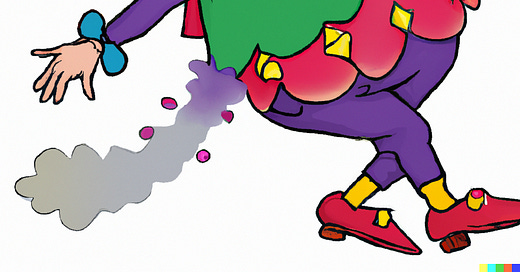In the swirling whirlpool of change that is our 21st-century existence, there is one pearl of wisdom that endures, "The more things change, the more they stay the same." It's a proverb that seems to encapsulate our human experience, a testament to the enduring nature of our fundamental needs and fears. A framework that we can use to see how things remain the same despite the changes that technology has brought is Scottish author, Alexander Chalmers’ recipe for happiness: "Something to do, someone to love, and something to hope for."
Take the realm of romantic love, or someone to love, as our first example. Our ancestors relied on arranged marriages, a practice that's still prevalent in some parts of the world today, or luck of running into our soulmate in their daily lives. In contrast, the last decade has seen the rise of dating apps, shifting the landscape from familial negotiations and luck, to swiping right on a screen. Yet, beneath the technological sheen, the core pursuit remains the same: seeking someone to love, someone to share our lives with. Yes, the process has been modernized with algorithms, but it's still fundamentally about human connection. Apps like Tinder, Bumble, and Hinge are just tools that accomplish a basic human need in a different way. They might have transformed the 'how', but the 'why' remains untouched. Technology might have changed the way we find love, but it hasn't changed the need for love itself.
Let's move on to the realm of entertainment, where the characters may change, but the plot remains the same. Picture this: a court jester named Roland the Farter, who, as per historical records, was granted a significant piece of land for his ability to entertain the 12th-century English court with his, let's say, 'unique' talent. Fast forward to the 21st century, and we see this same thirst for entertainment, albeit in more melodious forms, and for which we are still willing to pay a princely sum. Fans were willing to pay almost $3000 per ticket for a VIP experience during Beyonce and Jay-Z’s tour. A flatulist from medieval England and two contemporary music icons might seem worlds apart, but the underlying principle is the same: humans crave entertainment, and we're willing to pay for it. The players and technology to deliver that entertainment to us may change but the underlying desire remains the same.
While we're exploring the ways things remain the same, let's delve into our collective fear of technological change. History is replete with examples of technophobia, from the Luddites of the early 1800s, who destroyed machinery in a desperate bid to protect their livelihoods, to Anthony Trollope, who was ironically terrified of the potential societal disruption his own invention, the mailbox, could cause. As you see, before the advent of the mailbox, if a young woman wanted to send a young man a letter, they had to hand it to their fathers to be mailed. When telephones were introduced in the late 1800s, the New York Times predicted they would only serve to invade people's privacy (perhaps this is true…I’m looking at you TikTok). Fast forward to today, and we see similar fears around generative AI, a technology that is changing our world in astounding ways. Critics worry that it might destroy the moral fabric of society, just as they worried about telephones and mailboxes. Fear of new technology is as old as technology itself. It's a testament to our collective anxiety about change, about the unknown, about our place in a rapidly evolving world. The particular object of our fear might change – from mailboxes to telephones to AI – but the fear itself, the fear of change, remains constant.
So, here we are, standing on the precipice of a new future that some have said is possibly more disruptive than electricity or the internet. Our future, whether we want it or not, is going to be filled with AI and algorithms, virtual realities and nanobots. A future that promises to change the world as we know it. Yet, as we step into this brave new world, we carry with us the same fundamental needs and fears that our ancestors did centuries ago. We still seek love, even if we now look for it through the glow of a screen. We still crave entertainment, even if the court jesters of old have been replaced by pop culture icons. And we still fear the unknown, even if the objects of our fear are now complex algorithms instead of mechanical looms or postal boxes. Technology is transforming our world at a dizzying pace, but it's not changing the essence of who we are. We are, after all, only human, and it's our human needs and fears, our hopes and dreams, that will continue to guide us, no matter what the future holds.
The next time you find yourself worrying about the impact of AI, or feeling overwhelmed by the breakneck pace of technological change, remember this: the more things change, the more they stay the same. The stage may evolve, the players may change, but the play remains the same. And that play is, at its core, profoundly human. As we navigate the seas of change, let's not lose sight of our guiding stars: something to do, someone to love, and something to hope for. These are the grand essentials of happiness that have stood the test of time, and they will continue to guide us, no matter what the future holds. In the end, it's not the technology that defines us, but our unchanging humanity in the face of changing times. And that, to me at least, is reassuring.




